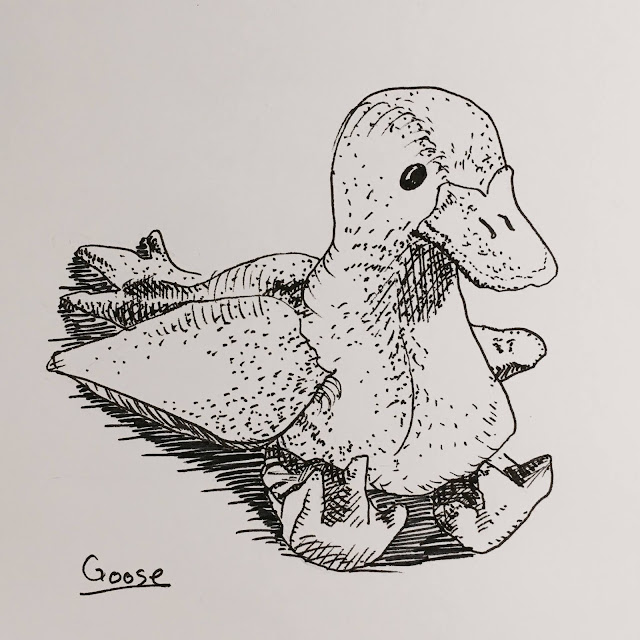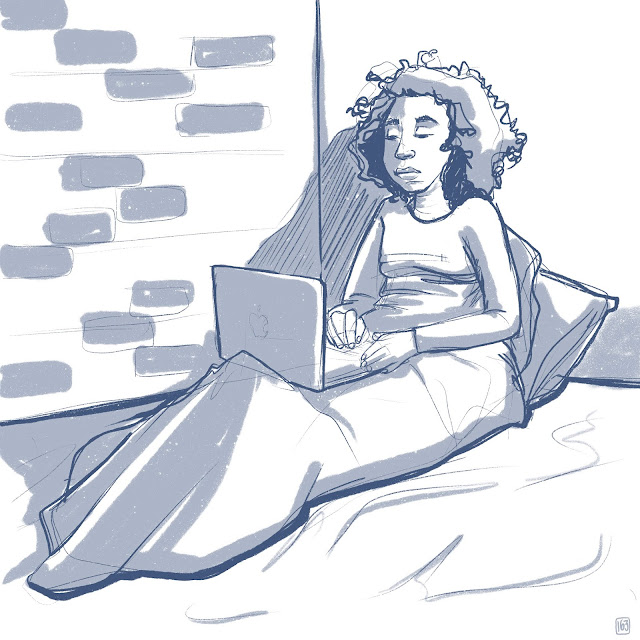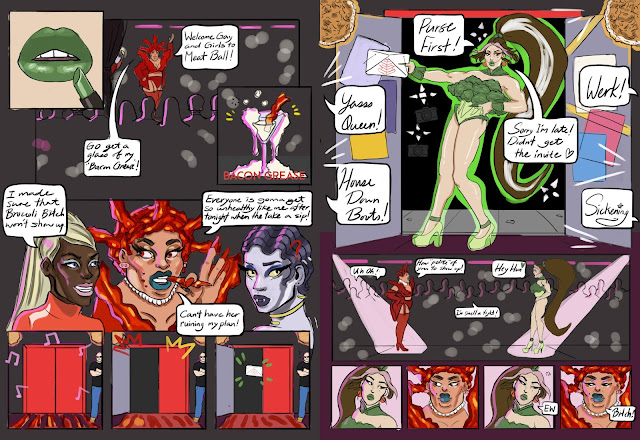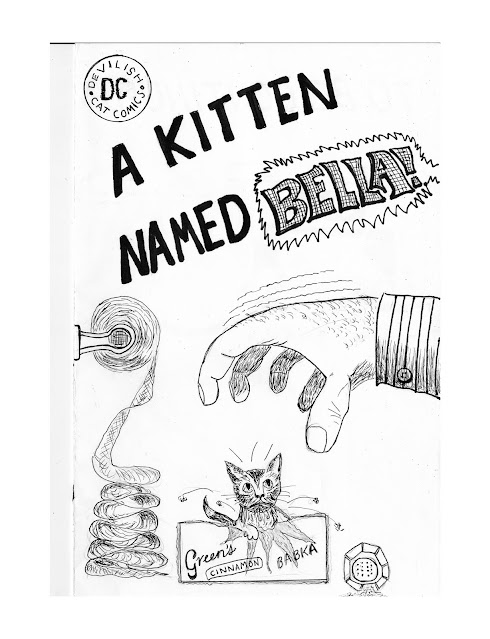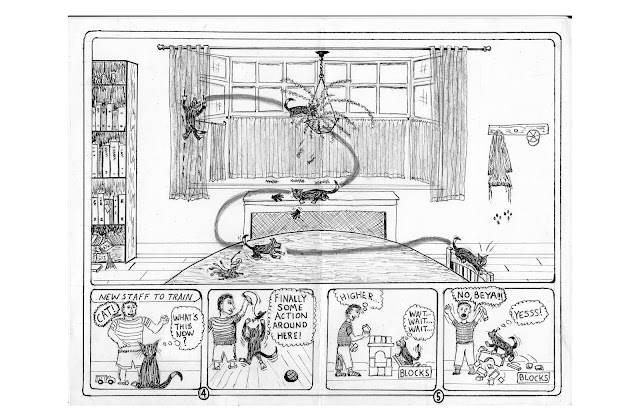 |
| Cartooning Basics student work by Maisy Byerly |
My online Cartooning Basics and Comics Inventions courses are enrolling right now at SVA.
Though I teach the comic making process from the beginning and often work with absolute beginners, my courses are nonetheless college level. Many students come to the experience with significant talent. I'm able to help them marshall their skills and focus them on key problems such as joke writing, action staging, page and panel composition, and much more. Below are examples of outstanding students who brought their A game to recent courses and completed amazing projects.

Maisy Byerly zoomed in to Cartooning Basics from Bloomfield Indiana. Her first completed minicomic, Violet Goes Into Business, is clearly the work of a seasoned pro:





Here's her expressiveness exercise from earlier in the course:

Tom Hughes' strong cinematic sensibility helps put his adventures of Julius "Nervous" Rex over the top. Tom incorporated his compressed story exercise from early in the Basics course into his final book project.





Laura Brown completed the Cartooning Basics and then Figure Drawing for Cartoonists course while also pursuing the Graphic Narrative MFA. Sez Laura, "If I hadn’t taken your cartooning classes this year, I wouldn’t have been able to create my final project for the visual narrative semester (my digital short story). I’m not exaggerating. These past two semesters have been an incredibly rewarding experience for me: stimulating, challenging, illuminating and gratifying. Your insight, openness and generosity with feedback gave me so many ways to approach drawing, to make drawings better and to have fun in the process. Thank you!"
 |
| One of the course exercises is to imagine the characters in their environment. |
Laura was already an accomplished writer. Here she weds her ear for dialog to visual storytelling techniques in a zoom sequence exercise:
Here's a scene from Laura's first comic...



and here's a page from her master's thesis,
The Avon Lady, a story told as an interactive website.
This one leaves me beyond amazed, truly next-level.
All three of these artists bear watching.
When you look at a comic, you say to yourself, "that looks pretty fun" (IT IS), and you think, "I'll bet I could do that"... (YOU CAN) ..."and be pretty good at it." (YOU TOTALLY, TOTALLY WILL).
BUT
There are a lot more challenges and pitfalls than one can anticipate. I'll be happy to guide you. Comics Inventions begins January 31, 2023, and Cartooning Basics begins Feb. 3. The online format is working out really well and makes these classes available all over the world. As schools reopen, that may change. Sign up ASAP and tell your friends, please.

